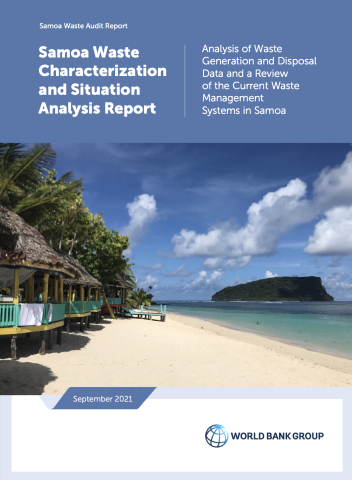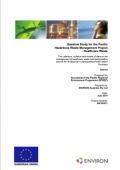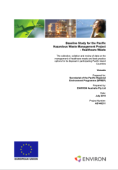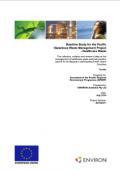
Proper waste management is essential for thriving societies, livable cities, and robust economies. In addition to the ongoing waste management issues of mainland countries, Pacific Island countries (PICs) are faced with a unique set of challenges – such as geographic isolation, vulnerability to climate change, high cost of transporting waste, limited availability of suitable land and a small consumer base
The study finds that approximately 27,057 tonnes of waste are generated annually in Samoa, with e-waste being the significant problem due to no existence of e-waste recycling facilities in the island. Local operators have collaborated to recover reusable and recyclable materials for overseas recycling, yet according to the study recyclers in Samoa cannot efficiently and safely extract valuable materials from e-waste without systematic support and a technical skills base.
Data collected in the study also presents that approximately half of the potentially recoverable materials entering the country through imports are currently not being collected. There is a need, therefore, to establish sustainable sources of financing for waste management, such as incentivizing efforts to recycle and reuse, setting up a user-pay system, and introducing import levies for plastic packaging. Strong governmental support suggests any needed expansion of the existing services can potentially be organized in partnership with several collection initiatives implemented by the private sector.




